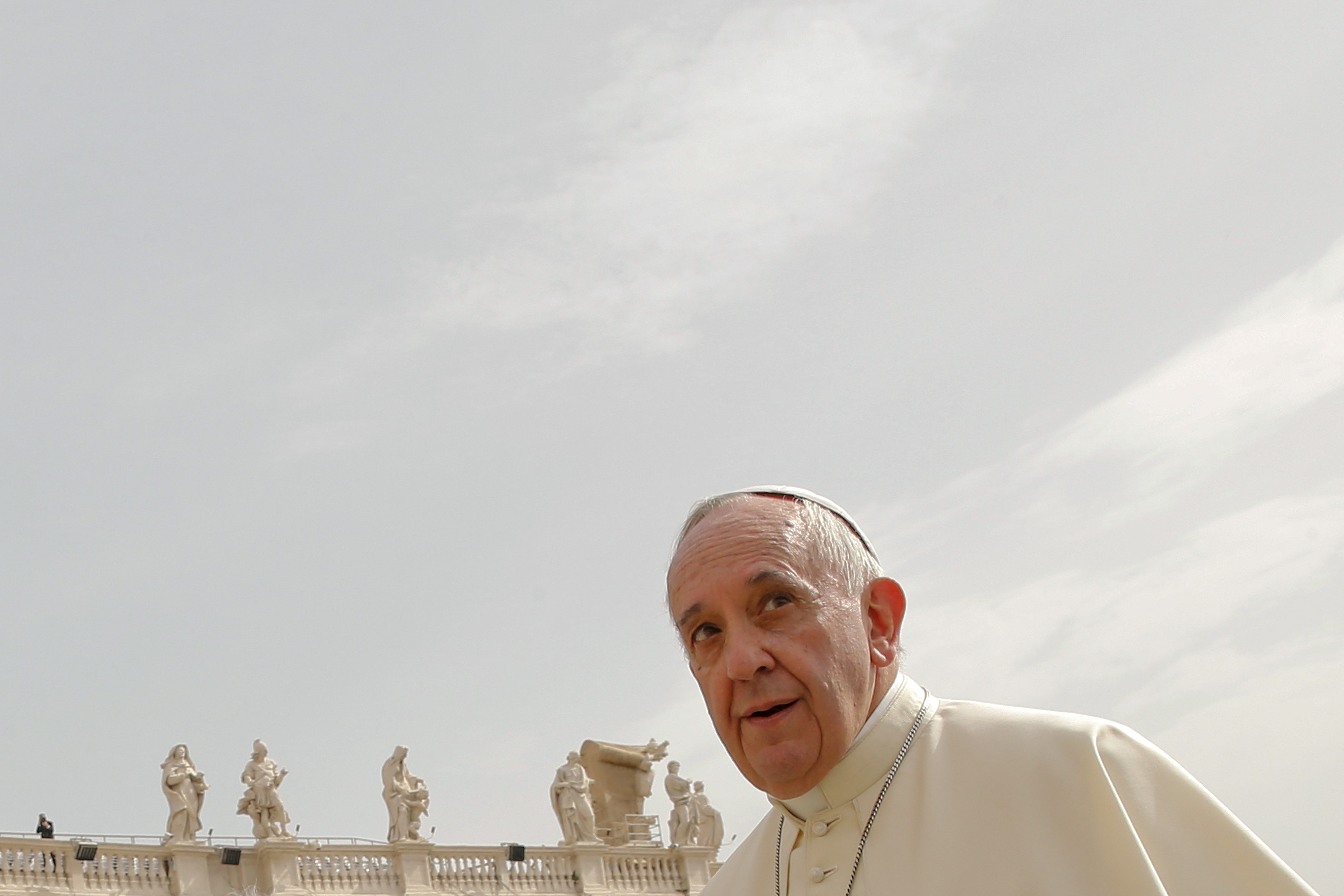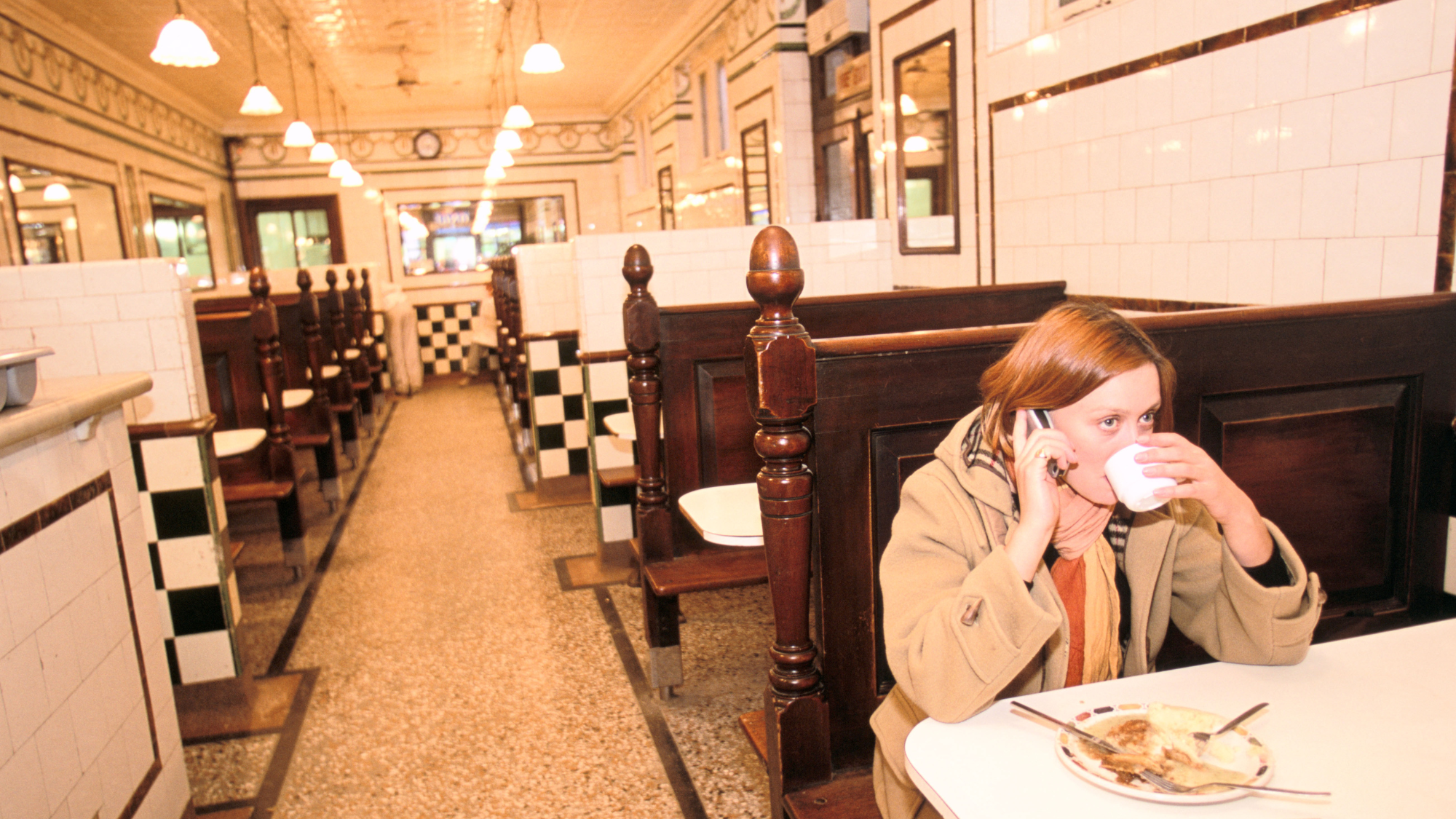The modern world's case against Pope Francis
The pope's contribution to the debate is welcome. But its implications should trouble the modern liberal.


A free daily email with the biggest news stories of the day – and the best features from TheWeek.com
You are now subscribed
Your newsletter sign-up was successful
It's impossible not to be impressed with the theological and moral seriousness of Laudato Si', Pope Francis' encyclical on the environment. Whether it's politically and economically wise is another matter.
The pope makes a powerful case for a profound change in how "every person living on this planet" thinks about the natural world and the place of humanity within it. Above all, he wants us to adopt an "integral ecology" that views the planet as "our common home" — a home that deserves to be treated with humility and respect, instead of as an object to be used for our selfish ends. If the human race learned to do that, to be more than "masters, consumers, [and] ruthless exploiters," to resist putting "blind confidence in technical solutions," then we just might restrain our insatiable appetite for development — the economic motor that pollutes the planet's air and water, fueling climate change and threatening to harm everyone, but especially the most vulnerable among us: the world's poor.
The indictment is radical. We need nothing short of a "bold cultural revolution" to avoid fulfilling "doomsday predictions" in which we leave coming generations a planet filled with "debris, desolation, and filth." Though the pope helpfully clarifies that "nobody is suggesting a return to the Stone Age," he does say we need to "look at reality in a different way" and "recover the values and the great goals swept away by our unrestrained delusions of grandeur."
The Week
Escape your echo chamber. Get the facts behind the news, plus analysis from multiple perspectives.

Sign up for The Week's Free Newsletters
From our morning news briefing to a weekly Good News Newsletter, get the best of The Week delivered directly to your inbox.
From our morning news briefing to a weekly Good News Newsletter, get the best of The Week delivered directly to your inbox.
Practically speaking, this means that "halfway measures" based on adjusting people's economic preferences and incentives (like "buying and selling 'carbon credits'") need to be dismissed as a mere "ploy" to protect "excessive consumption" and forestall "the radical change which present circumstances require." Truly "decisive action" would involve individuals and classes and countries (and even all members of the human species) ceasing to put their own good ahead of those of others. This would include accepting "decreased growth in some parts of the world" — which is the only way truly to rein in "those who constantly consume and destroy."
The argument is worth pondering. But it's also worth contesting. And there's no better way to do so than to remind ourselves of the strongest arguments on the other side. Not arguments in favor of fouling our nest and turning the planet into a sauna that's much less hospitable for human life, of course. But the most cogent arguments in favor of the view of nature and humanity that Francis believes we need to overthrow.
Those arguments were first made by the writers who most deeply inspired liberal modernity — Niccolò Machiavelli, René Descartes, Francis Bacon, Thomas Hobbes, and John Locke. These men wrote in opposition to what they believed to be the doleful practical consequences of the Christian view of the natural world and humanity's place within it — the view that Francis says we need to return to. What is this Christian view? That human beings ought to be humble, act with restraint in their dealings with nature, and put their faith in God. When they do so, God will provide for them.
In the view of these early modern proto-liberals, this Christian outlook leads people to be supine in the face of exploitation by the powerful (including corrupt members of the clergy) and submissive when confronting a natural world that, when untransformed by human ambition and ingenuity, is often inhospitable to human beings and frequently inimical to their flourishing.
A free daily email with the biggest news stories of the day – and the best features from TheWeek.com
After more than a millennium bathed in an ethic of Christian humility, these writers argued, European life was marked by oppression, poverty, and passive acceptance of a natural order that showed no sign of guidance by the hand of God. Such a situation leaves human beings subject to powers — fate and malign human will — that can and will destroy them. The proper response isn't acceptance. It's standing up for ourselves and taking matters into our own hands.
That's why Machiavelli counseled that we take firm control of fate, "beat" her, and "strike her down." And why Bacon thought we should use scientific knowledge to "relieve man's estate." And why Descartes proposed that we aim to become "masters and possessors of nature" by unleashing human ambition and ingenuity in the fields of science, medicine, and technology. And why Hobbes and Locke devised their state-of-nature teachings — to serve as modern fables that would overthrow the Christian presumption that God will provide for us if we prostrate ourselves before him and his creation. No, he will most certainly not, these writers implied. Life in a natural state, according to Hobbes, is "nasty, brutish, and short," and if we ever hope to enjoy "commodious living," we will need to stop relying on the protection of an imaginary (or perhaps merely indifferent or absent) God.
Who can deny that these prophets of material progress were right in the decisive respect? Before long, the Western world began to enjoy rapidly rising standards of living, the first stabs at political self-government, railroads, indoor plumbing, declining infant mortality, electricity, anesthesia, automobiles, airplanes, motion pictures, dentistry, refrigeration, antibiotics, television, electron microscopes, declining food prices and expanding food choices, air conditioning (yes, air conditioning), space travel, advances in telecommunications, computers, and the internet.
Are there downsides to economic and technological development? Of course there are: exploitation of workers, alienation and anomie, the moral confusions spread by markets and exacerbated by cultural pluralism, nuclear and other weapons of mass destruction, and the very real and very serious environmental challenges that Pope Francis highlights so powerfully in his encyclical.
But liberal modernity's response to these challenges, unlike the pope's, does not involve a radical (and at this point, unlikely and undesirable) moral reorientation toward the natural world. From the beginning, liberal modernity's great strength has been a sober and somewhat cynical outlook about human motivation. Take human beings as they are and not as they should be, unleash their ambition, allow individuals to seek knowledge and profit, use political and economic institutions to channel that striving in publicly beneficial directions, and many people will benefit — from the creation of wealth no less than from scientific and technological advances.
Liberal modernity's proposed solution to climate change is therefore to impose regulations and devise incentives to get individuals and businesses to change their behavior, clean up their messes, and pursue alternative (renewable) forms of energy that do less damage to the Earth in the future. (A system of "carbon credits," rejected by Pope Francis as insufficiently radical, is one such approach.) Have we thus far failed to do as much as we should have to combat climate change? Probably. But the proof is in the process of weighing the relative costs of doing something versus doing nothing.
Unlike the pope, liberal modernity insists that slowing economic growth, and heavily regulating industries, comes at a significant human cost (very much including to the poor). If the costs of allowing the climate to keep warming are higher, then by all means we should make significant changes. But only when the very real costs on both sides of the ledger are taken into account, and the unavoidable trade-offs are faced squarely and honestly.
The alternative is precisely the kind of well-meaning wishful thinking that provoked the modern project in the first place.
Damon Linker is a senior correspondent at TheWeek.com. He is also a former contributing editor at The New Republic and the author of The Theocons and The Religious Test.
-
 Can London’s pie and mash shops make a comeback?
Can London’s pie and mash shops make a comeback?Under the Radar Traditional East End eateries are on the ‘brink of extinction’ – but a younger generation is giving the Cockney cuisine an unexpected boost
-
 Josh D’Amaro: the theme park guru taking over Disney
Josh D’Amaro: the theme park guru taking over DisneyIn the Spotlight D’Amaro has worked for the Mouse House for 27 years
-
 What happens now that the US-Russia nuclear treaty is expiring?
What happens now that the US-Russia nuclear treaty is expiring?TODAY’S BIG QUESTION Weapons experts worry that the end of the New START treaty marks the beginning of a 21st-century atomic arms race
